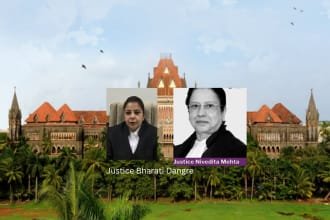The Supreme Court of India has held that a dependent of a missing employee cannot claim compassionate appointment if the employee is deemed to have retired before the statutory period of seven years necessary for presumption of civil death. The Court also emphasized that once the family has accepted pensionary and retiral benefits arising from the employee’s retirement, they cannot later turn around and seek compassionate appointment by claiming that the employee should be presumed dead from the date of disappearance.
Background of the Case
The case involved Gulab Mahagu Bawankule, an employee of the Nagpur Municipal Corporation, who went missing on September 1, 2012. Despite his disappearance, the corporation continued to treat him as being in service, and he formally retired on January 31, 2015, his normal date of superannuation.
Following his retirement:
- His family received ₹6.49 lakh in retirement benefits.
- They also received a monthly pension of ₹12,000.
In 2022, a civil court declared Bawankule dead but did not specify any retrospective date of death. Thereafter, his son applied for compassionate appointment. The Bombay High Court (Nagpur Bench) accepted the request and ordered that the son be given a job, holding that the father should be treated as dead since the date he went missing (2012).
The Nagpur Municipal Corporation challenged this before the Supreme Court.
Key Legal Principles Discussed
1. Presumption of Civil Death
Under Section 108 of the Indian Evidence Act, a person is presumed dead only after seven years of continuous disappearance. In this case, seven years from September 2012 would complete in 2019. However, Bawankule retired in 2015, before this period expired.
2. Nature of Compassionate Appointment
Compassionate appointment is not a routine right. It is intended as a special relief measure provided to the family of an employee who dies in harness—i.e., while still in service—to prevent sudden financial hardship.
If an employee retires normally, the family cannot claim the benefit of such a scheme, since retirement does not create a sudden financial crisis requiring immediate government support.
Supreme Court’s Reasoning
The Supreme Court concluded that:
- Since the employee was deemed in service until his normal retirement date, he cannot be considered to have “died in harness.”
- The family accepted the retiral dues and pension, which clearly shows acknowledgement of retirement, not death.
- Therefore, there was no legal basis for claiming compassionate appointment.
The bench observed:
“It is pertinent to note that despite having gone missing, he was treated to be in continuous service and he duly retired on 31.01.2015. The family members were paid all the retiral dues and have also been receiving monthly pension. In these circumstances, when the respondent No.2 has accepted that his father had retired, he cannot claim compassionate appointment.”
Why the High Court Order Was Set Aside
The High Court had ordered compassionate appointment based on the assumption that the missing employee should be treated as having died when he disappeared.
However, the Supreme Court held that:
- This assumption violated the legal requirement that death is presumed only after seven years.
- The High Court’s reasoning was therefore incorrect and unsustainable.
Outcome of the Case
The Supreme Court:
- Set aside the High Court’s order directing compassionate appointment.
- Allowed the appeal filed by the Nagpur Municipal Corporation.
- However, the Court showed humanitarian consideration by allowing the Corporation to consider the son for appointment on regular grounds, not compassionate grounds:
“…open to the appellants to consider the case of the respondent No.2 for appointment for any suitable post within its jurisdiction, independent of claim for compassionate appointment, if necessary by granting age relaxation…”
Thus, while the legal claim for compassionate appointment was rejected, the Court allowed a possible employment opportunity through ordinary recruitment channels, if permissible.
Key Takeaways
✅ Compassionate Appointment Requires Death in Harness
If the employee retires before death is legally recognized, the claim cannot be entertained.
✅ Acceptance of Pension Benefits Bars Later Claims
Once a family accepts retirement benefits, they confirm retirement, not death.
✅ Presumption of Death Requires Seven Years
Civil death cannot be attributed before completion of 7 years of disappearance.
✅ Supreme Court Balanced Law and Humanity
While rejecting the claim on legal grounds, the Court allowed the possibility of employment on general terms.
Impact of the Judgment
This judgment will be significant for:
| Stakeholder | Impact |
|---|---|
| Government and Municipal Bodies | Reduced litigation in similar claims |
| Dependent Family Members of Missing Employees | Clear legal guidance on when compassionate appointment applies |
| Courts | Reinforces legal consistency regarding presumption of death |
| Employment and Pension Departments | Clear administrative protocol for missing employees |
It prevents misuse of compassionate appointment, keeping the scheme reserved for families genuinely affected by unexpected death.
Conclusion
The Supreme Court’s ruling reaffirms the principle that compassionate appointment is an exception, not a right, and can only be granted under strict conditions. A missing employee who retires before the seven-year period required for presumption of death cannot be treated as having died in harness, especially when the family has already availed retiral and pension benefits.
The Court, however, ensured fairness by allowing the Municipal Corporation to consider the dependent’s case under general recruitment rules, maintaining a balance between legal principles and humane considerations.


